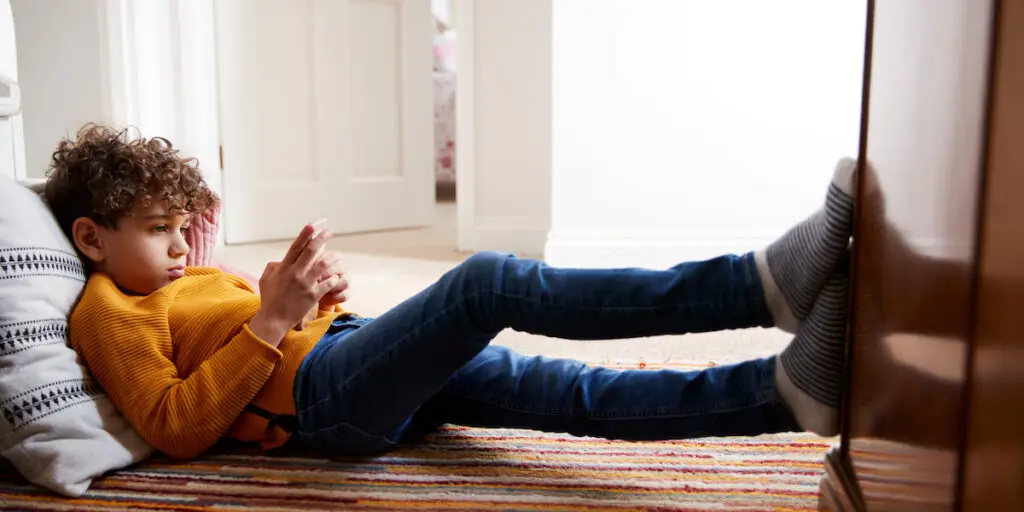The following is excerpted from an online article posted by MedicalXpress.
Screens have become ubiquitous in our daily lives—which means they’ve also become part of children’s lives too. So what effect does this have on children’s developing brains, especially critical language skills? To understand this, scientists in Estonia surveyed the parents of more than 400 children about their screen use, their children’s screen use, and their children’s language skills.
They found that parents who use screens a lot also have children who use screens a lot, and that children’s higher screen time is associated with poorer language skills.
“Our study reveals that children’s screen use patterns are similar to those of their parents,” said Dr. Tiia Tulviste of the University of Tartu, lead author of the study in Frontiers in Developmental Psychology.
The researchers sorted both children and adults into three screen use groups—high, low, and moderate. They then analyzed this data to see if there was a link between parental screen use and children’s screen use.
They found that parents and children generally belonged to the same groups: parents who used screens a lot had children who also used screens a lot. Controlling for age, they looked at the language development of these children, and found that children who used screens less scored higher for both grammar and vocabulary. No form of screen use had a positive effect on children’s language skills.
Source: MedicalXpress
https://medicalxpress.com/news/2024-09-kids-families-screen-struggle-language.html
Find more culture news on HomeWord’s Culture Blog, named in 2024 for the ninth consecutive year as one of the top 50 culture blogs on the planet (#19 of 50)!




